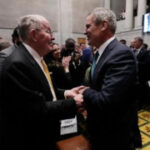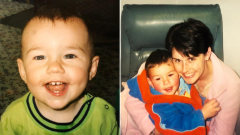When U.S. Agency for International Development and the State Department told their contractors to pause all work, Sadie Healy expected the impact to be “horrendous.”
But Healy, who runs a small global health consulting firm, Molloy Consultants, realized no one was documenting how bad the freeze on U.S. foreign aid would be. USAID wouldn’t be cataloging the impacts as President Donald Trump’s administration fired senior staff, shuttered its headquarters and then told its employees their jobs would end. The nonprofits and aid companies who worked with USAID were fighting to survive.
So Healy decided she would do it.
“I am an action person. The depression and the sadness that we knew this was going to cause was something I couldn’t deal with,” Healy said in an interview with The Associated Press. “So we called a Zoom meeting.”
Healy is one of a growing number of people and organizations in the international development ecosystem stepping forward to track the impact of the freeze on U.S. foreign aid. Many are nonprofits who already support grassroots groups around the world, while others are professionals now volunteering their time, connections and skills.
The U.S. is the largest single global humanitarian funder, giving $13.9 billion in 2024, and largest supporter of U.N. agencies, meaning any changes to foreign assistance have sweeping impacts across geographies and issues. The pause in funding has since turned into the dismantling of USAID and its programs.
“CLOSE IT DOWN,” Trump said on social media on Friday, though a judge has paused a plan to put thousands of employees on paid leave.
Elon Musk, Tesla CEO and billionaire adviser to the Trump administration, has led the campaign to shut down USAID, saying in posts on X that it is “evil,” a “criminal organization,” and a “viper’s nest of radical-left marxists who hate America.” Secretary of State Marco Rubio has said funding will not be permanently cut, but people in the field say every day the freeze continues and USAID stops works causes irreparable harm. The State Department did not respond to a request for comment.
Healy and her business partner Meg McClure said they decided to focus on documenting the number of American jobs lost. They eventually got in touch with a staffer from a Senate committee, who advised them on what data to collect.
Within days, they launched a website, USAID Stop-Work, and a survey to document how many U.S. jobs have been lost as a result of the freeze on foreign assistance. So far, employers or employees have reported 10,758 jobs cut since the stop work orders landed on Jan. 24. That number includes some positions at USAID, but not all of the 8,000 workers directly employed by the agency




